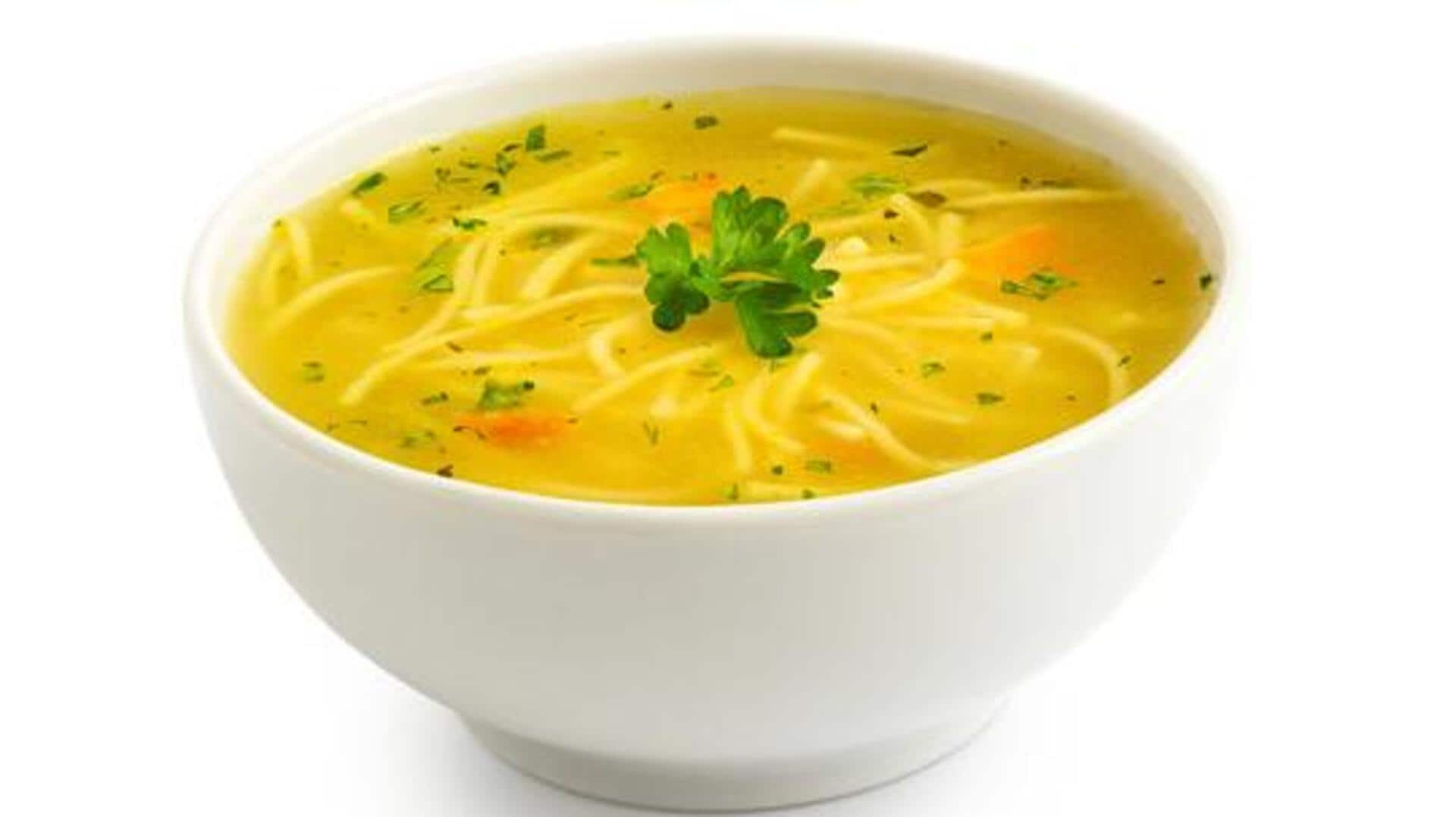
Soup for colds: Myths v/s facts
What's the story
We have all heard that eating soup when you have a cold can help you feel better. The age-old belief is that soup can cure colds, but is it really true? Let's find out if soup has any real benefits when you're under the weather. We'll look at the science behind this claim and see if there's any truth to the idea of soup curing colds.
Nutrients
Nutritional value of soup
Soup is generally loaded with vitamins and minerals from its vegetable ingredients. These nutrients are essential for the body to function properly and can help you recover from mild illnesses. For instance, vitamin C from vegetables like carrots and tomatoes can help boost your immune system. However, while these nutrients are beneficial, they don't directly cure colds.
Hydration
Hydration benefits
One of the biggest advantages of having soup when you're sick is hydration. Staying hydrated is extremely important when you're suffering from a cold, as it helps keep your throat moist and prevents dehydration. The liquid content in soup makes it an excellent choice for staying hydrated. However, it's important to note that hydration alone doesn't cure a cold.
Comfort
Warmth and comfort factor
The warmth of a hot bowl of soup can be comforting when you're feeling unwell. This comfort may help improve your mood and make you feel better temporarily. The steam from the soup can also help clear nasal passages, providing some relief from congestion. However, this effect is more about comfort than curing illness.
Placebo
Potential placebo effect
The belief that soup cures colds may also have a placebo effect. If you think that eating soup will make you feel better, you may actually feel better because of that belief. This psychological effect can be powerful but doesn't mean that soup is actually curing anything biologically.